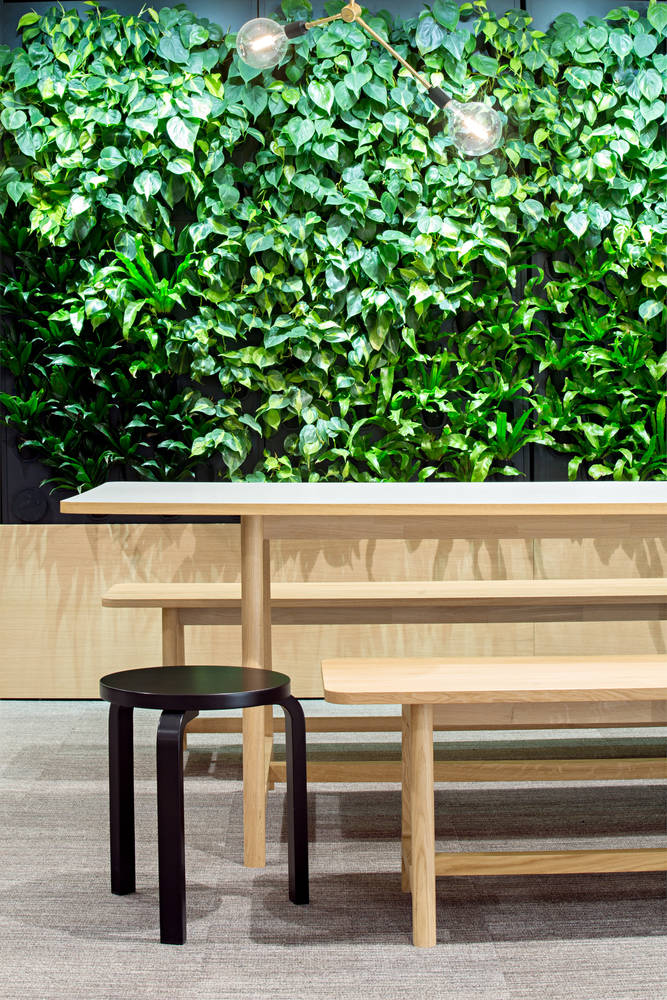The focus of our environmental responsibility is on increasing the energy efficiency and material efficiency of our operations, minimizing environmental impacts and developing new environmentally friendly products and services. Berner’s environmental responsibility efforts are guided by the company’s environmental program. The key focus areas of our environmental program for 2018–2020 are as follows:
Responsible packaging
We develop and implement new ecological packaging solutions for our products. We will participate in Finnish innovation efforts aimed at replacing traditional plastic packaging with biodegradable packaging, and we will also increase the use of recycled plastic.
Responsible raw materials
We develop products for the cosmetics and agricultural industries that contain local bio-based raw materials as well as raw materials that originate from the by-products of the bioindustries and the food industry.
Minimizing the environmental impacts of production and transport
We will continue to make energy-efficient investments at our production facilities in Heinävesi. We will reduce the use of packaging materials, continue to enhance the processing of waste water and increase the use of renewable energy in our operations, including transport.
Environmentally friendly Finnish production
The choices we make help keep jobs in Finland, reduce product transportation distances and reduce transport-related emissions. We provide training to our staff to ensure that everyone can reduce environmental impacts through their own actions. We use life-cycle analyses in product development to manufacture safe products whose environmental impact is minimized.
Our choices of packaging materials are aimed at reducing waste while facilitating the subsequent recycling and recovery of packaging materials. We manage the producer responsibility associated with the recycling of our packaging via an agreement with Finnish Packaging Recycling RINKI Ltd.
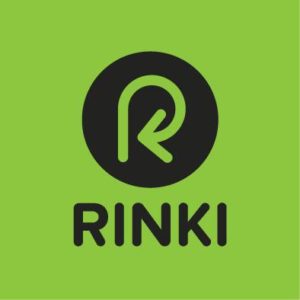
Responsible actions
Berner and Sulapac engage in cooperation related to ecological packaging innovation
We signed a strategic partnership agreement in fall 2017 with Sulapac Ltd, a Finnish company that develops innovative packaging solutions. Berner is one of Sulapac’s product development partners for packaging innovation.
“We are always looking for – and developing – more responsible solutions for our products and packaging. It is important for us to be involved in the development of sustainable Finnish innovations, and Sulapac is an excellent example of this. This partnership is a natural step for us, as our own product development began in the 1950s with the development of our XZ brand,” says Jussi Armanto, Director, Daily Consumer Goods.
Founded by Suvi Haimi and Laura Kyllönen in 2016, Sulapac is a Finnish company that produces biodegradable packaging materials from wood chips. Sulapac’s ecological packaging was selected as the best green packaging solution at the packaging industry’s most important international trade fair in Monaco in October 2017. In November Sulapac was awarded as the winner of the Sustainable Packaging category at the Sustainable Beauty Awards in Paris. Sulapac also won the 2017 Green Alley Award, Europe’s first founder’s prize for start-ups in the circular economy.
“Using plastic is not sustainable, so we are looking for eco-friendly alternatives. The primary raw material in Sulapac’s innovative and fully biodegradable packaging solution is sourced from Nordic wood. Our goal for this development partnership is to have our first products packaged in Sulapac’s biodegradable packaging within 2018. However, it is important to note that joint product development is always a long road to embark on,” says Maria Svinhufvud, Head of Product Development and Materials Management at Berner.
“Partnering with companies that have a pioneering attitude will allow Sulapac’s packaging solutions to challenge traditional plastic packaging and drive the development towards a cleaner and more sustainable world,” says Suvi Haimi, CEO and Co-founder of Sulapac Ltd.
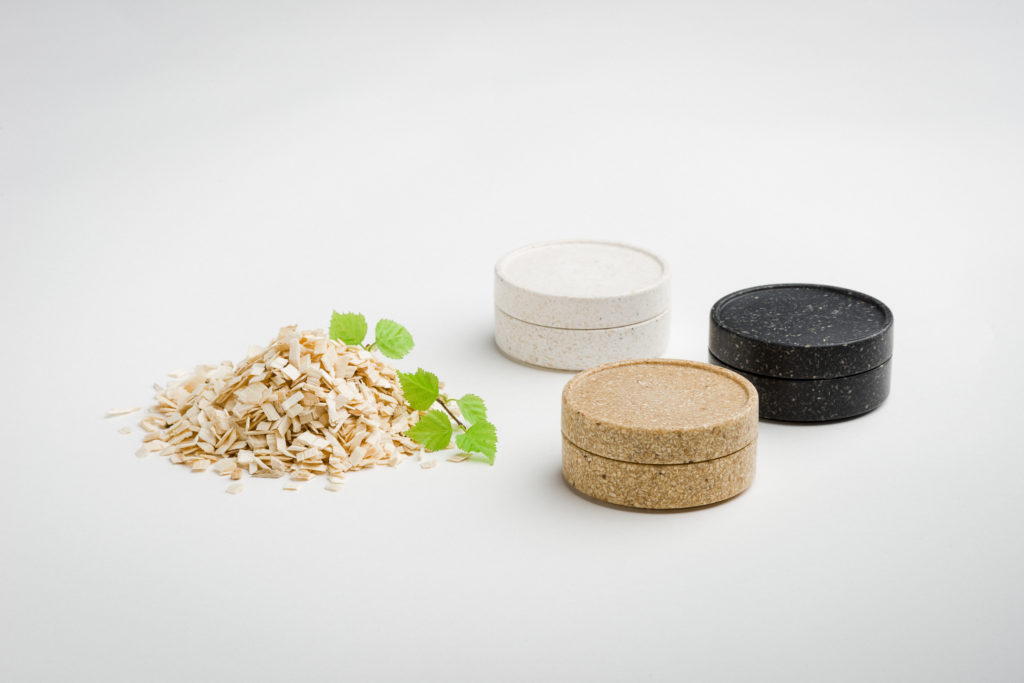
Ympäristön Ystävä recycled fertilizer supported a donation to protect the Baltic Sea
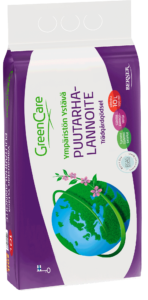 We developed our new environmentally friendly GreenCare Ympäristön Ystävä garden fertilizer in cooperation with the Baltic Sea Action Group (BSAG) and S Group. At the same time, we committed to supporting BSAG’s operations and promoting sustainable development through the exploration of new possibilities for recycling nutrients.
We developed our new environmentally friendly GreenCare Ympäristön Ystävä garden fertilizer in cooperation with the Baltic Sea Action Group (BSAG) and S Group. At the same time, we committed to supporting BSAG’s operations and promoting sustainable development through the exploration of new possibilities for recycling nutrients.
The entire production chain of the Ympäristön Ystävä garden fertilizer is as eco-friendly as possible, from the sourcing of the raw materials to the packaging of the finished product. Many of the raw materials used in the fertilizer, such as the industrial by-products of grain processing and sugar production, have previously been completely unused as a source of plant nutrition.
“With this product, we are returning the plant-derived industrial by-products of the Finnish agricultural and forestry sectors back to the soil. They promote microbial activity in the soil, improve its granular structure, and bind carbon in the soil. Thanks to SOILFOOD INSIDE, a Finnish innovation, plants are able to use the soil’s nutritional resources more efficiently, which leads to more balanced and plentiful growth. The use of odorless fertilizer granules is easy and clean,” says Janne Pulkkinen, Category Manager for gardening products at Berner.
Our Baltic Sea commitment
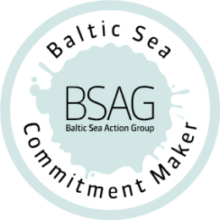 For every Ympäristön Ystävä product sold, 50 cents was donated to the Baltic Sea Action Group. The partnership will continue in 2018. We also made a commitment to the continued research and development of the possibilities for recycling nutrients more extensively to support sustainable development in both home gardening and professional agriculture. Berner will launch new recycled nutrient solutions in 2018.
For every Ympäristön Ystävä product sold, 50 cents was donated to the Baltic Sea Action Group. The partnership will continue in 2018. We also made a commitment to the continued research and development of the possibilities for recycling nutrients more extensively to support sustainable development in both home gardening and professional agriculture. Berner will launch new recycled nutrient solutions in 2018.
“The recycling of nutrients is essential for the Baltic Sea, as nutrients that would be useful elsewhere cause algal bloom when they end up in the sea. Recovery of the nutrient streams that are considered waste by the industries that produce them prevents them from ending up in waterways, where they exacerbate the eutrophication of the Baltic Sea. Good soil condition also reduces the amount of nutrient run-off from gardens into waterways,” says BSAG Secretary General Mathias Bergman.
Microplastics removed from Berner’s own cosmetics and skincare products
In 2015, Cosmetics Europe issued a recommendation to the cosmetics industry to discontinue the use of plastic micro particles in cosmetics products by 2020. We responded by immediately discontinuing the use of plastic micro particles in our own cosmetics and skincare products in 2015. The LV Hoitava roll-on antiperspirant product was the only product to contain plastic micro particles in 2017, and only because the definition of plastic micro particles has changed over the years. The reformulation of the product is currently underway and microplastics will be removed from the product in 2018.
Recent studies indicate that microplastics are harmful to the environment, and we want to offer more responsible alternatives to consumers. Fortunately, the rapid development of raw materials means that alternatives are now widely available. For example, we use plant-based microbeads in Herbina and LV exfoliating scrubs. XZ haircare products and Oxygenol toothpaste products are also free of plastic micro particles.
We import a number of well-known cosmetics brands, such as Clarins, Sensai and IsaDora. Clarins products do not contain any plastic micro particles. Clarins has replaced plastic microbeads with cellulose granules. Sensai products are also free of plastic micro particles. IsaDora’s glitter nail polish currently contains plastic micro particles in the form of glitter. Other IsaDora products are free of plastic micro particles.
Supporting sustainable palm oil production through RSPO
Palm oil and palm kernel oil are two types of oil derived from oil palms. The cosmetics industry uses palm kernel oil, which is a by-product of food production.
The use of palm oil involves environmental concerns related to its impact on rain forests. Recognising this, the industries that use palm oil, including the cosmetics industry, are constantly looking for new and more sustainable solutions for palm oil production.
Palm production offers a superior oil yield compared to the alternatives. Fully replacing palm oil with other vegetable oils, such as olive, coconut or rapeseed oil, would require a vastly greater area of land for cultivation. This would not necessarily be a better solution for the environment. For this reason, many manufacturers of raw materials for cosmetics are RSPO members to systematically support the sustainable and responsible production of palm oil.
Palm oil sourced only from RSPO members
The palm oil used in Berner’s cosmetics and skincare products is purchased from members of the Roundtable on Sustainable Palm Oil (RSPO). RSPO develops principles for sustainable palm oil production. The members of RSPO are committed to increasing the ecological, social and economic responsibility of oil palm production. Supporting the RSPO’s objectives is currently the best way to contribute to responsible palm oil production.
Alternatives to palm oil
We also use other natural oils in our products, including olive, avocado, almond and rapeseed oil. In addition, we utilise Finnish ingredients such as sea buckthorn oil and other berry seed oils. The development of XZ Blueberry shampoo, a special product to mark the centenary of Finland’s independence, was based on Finnish raw materials and innovation: domestic blueberry seed oil and betaine extracted from sugar beet. We also use Finnish xylitol in our Oxygenol toothpaste products.
Shea butter
Shea butter is a fat extracted from the nut of the shea tree. Rich in vitamin E, it soothes and revitalises skin. We use shea butter in our Herbina products, among others.
The shea butter we use is sustainably sourced through our Swedish supplier, one of the founding members of the Global Shea Alliance.
Sustainable and environmentally friendly choices for consumers
The Nordic Ecolabel, also known as the Swan label, is objective indication of the eco-friendliness, safety and high quality of a product or service. The number of our products carrying the Nordic Ecolabel increased substantially in 2017 and now stands at 79.
367 of our products have the Key Flag, which indicates that the product is manufactured in Finland and supports Finnish employment.
In total, 98 products are now approved by the Allergy, Skin and Asthma Federation. The Allergy Label is issued to products whose safety and reliability has been proved by independent studies. Products that carry the Allergy Label are free of fragrances and commonly allergenic or irritant agents. In home appliances, the Allergy Label reflects features that help reduce indoor air impurities. All products that carry the Allergy Label satisfy detailed category-specific criteria.
Four new organic products were developed at our production facilities in Heinävesi in 2017.
 Key Flag products in total 367
Key Flag products in total 367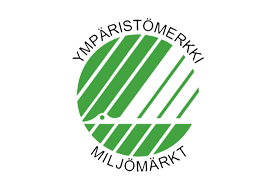 Nordic Ecolabel products in total 79
Nordic Ecolabel products in total 79 Products approved by the Allergy and Asthma Federation in total 98
Products approved by the Allergy and Asthma Federation in total 98
Own organic products 4
 We strive to use suppliers with international certificates, such as ISO 9001 and ISO 14001.
We strive to use suppliers with international certificates, such as ISO 9001 and ISO 14001.Berner again participates in Food Waste Week
Berner participated in the Food Waste Week organized by the Consumers’ Union of Finland for the second time by communicating content on reducing food waste and responsible consumption on social media as well as other platforms, including the Rajamäen and GreenCare websites. We also encouraged our staff to reduce food waste.
Environmental factors taken into account in designing the new office
We moved our company headquarters to a new multipurpose office in Helsinki’s Herttoniemi district in summer 2017. Environmental factors were given a high priority in the relocation project, the design of the new premises and the choice of materials.
As the old office furniture and the materials used in the move were primarily recycled to be reused and secondarily recovered as energy, the relocation generated no landfill waste that has a negative impact on the environment. Surplus items were also recycled by donating them to day-care centers, the company’s personnel and recycling centers.
The new multipurpose office is equipped with highly efficient LED lighting that is partially motion-activated. Quality and durability were important criteria in the choice of materials. Indoor air quality was further improved by a Naava smart green wall and carpet materials whose installation did not require the use of glue or surfacing chemicals. In choosing furniture, we prioritized environmentally certified products made in Finland.
The new office is designed to be as paperless as possible and there are no personal printers for employees. We also have a policy of not using disposable utensils and cups at our office. In conjunction with the move, the number of categories of recycled waste was increased at the property the new office is located in.
We invite you to visit our modern multipurpose office on Hitsaajankatu!
